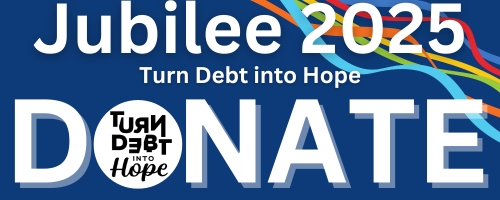Advocacy Asks for COP27
KARIOS and For the Love of Creation call on the government of Canada to do the following to address the climate crisis and help bring about a Just Transition.
For the Love of Creation calls on Canada to:
- Increase Canada’s Greenhouse Gas (GHG) emission target from reducing emissions by 40-45 percent below 2005 levels by 2030 by 60 percent in the same timeframe in order to meet our fair global share and meet Paris Agreement targets.
- Increase Canada’s support for climate adaptation from 40 percent to at least 50 percent, the amount Canada committed to as a signatory under the Paris agreement.
- We advise advocating for a package of climate justice legislation currently before Parliament that includes:
- Bill C-226 – to create a national strategy on Environmental Racism and Environmental Justice.
- Bills C-262 and C-263 to improve Canadian corporate accountability internationally (especially on resource extraction issues) and give the Ombudsperson more authority.
In addition, KAIROS Canada calls on Canada to:
- Centre perspectives, insights, and recommendations of those who are most acutely impacted by the climate crisis including women peacebuilders, land defenders, and Indigenous leaders in climate policy and decision-making. Often unheard and least responsible for climate change, these civil society activists and community leaders offer critical, innovative and effective solutions that we can no longer ignore.
- Center Indigenous history and leadership in climate action and policy.
- Ensure equitable, genuine, informed, and meaningful participation of Indigenous peoples in processes and conversations related to climate change challenges and solutions.
- Uphold the rights, knowledge, and sovereignty of Indigenous Peoples in all climate- and water-related policy decision-making. Develops environmental policies rooted in Indigenous self-determination and consistent with UNDRIP.
- Recognition, defense and protection of the rights and the lives of Indigenous peoples and land defenders.
- Increased focus and support for policy and program that recognizes the nexus of the climate crisis, conflict and gender inequities
- Strengthen feminist foreign policy and understanding of security by focusing policy and resources on the nexus between the Women, Peace and Security agenda and environmental justice.
- Commit to grants-based climate funding that builds capacity and expands the influence of Global South grassroots women’s organizations and movements in an integrated, feminist global approach to the climate crisis, peace and security.
- Shift the focus of climate financing from a predominantly technical approach to one addresses and funds both mitigation and adaptation equally and supports countries and communities that are most impacted by climate change.
- Commit at least $1.8 billion annually in bilateral climate finance for the Global South that is gender-responsive, addresses both mitigation and adaptation, responds to the pandemic, supports the leadership of women in climate decision-making, and prioritizes funding for grassroots women’s organizations through grants-based, nonenvironmental racism, multilateral funding mechanisms.
- End environmental racism, multilateral funding mechanisms. the disproportionate impacts on Indigenous, Black, and other racialized communities from polluting industries and environmental hazards, and uneven access to nature and environmental benefits.
- Prioritize and expedite Canada’s first environmental racism law: Bill C-226 to end environmental racism and advance environmental justice
- Make corporations accountable
- Take action on reports of systemic human rights abuse and environmental damage linked to Canadian oil, gas and mining projects around the globe that exacerbate the climate crisis. Prioritize and expedite legislation on Canadian corporate accountability.
- Bill C-262 for the adoption of mandatory human rights and environmental due diligence legislation (mHREDD)
- Bill C263 to empower the Canadian Ombudsperson for Responsible Enterprise (CORE)
- Take action on reports of systemic human rights abuse and environmental damage linked to Canadian oil, gas and mining projects around the globe that exacerbate the climate crisis. Prioritize and expedite legislation on Canadian corporate accountability.
Support three bills to end environmental racism and make corporations accountable.




